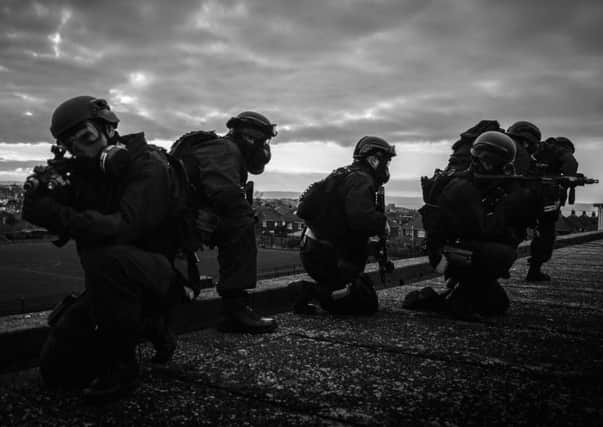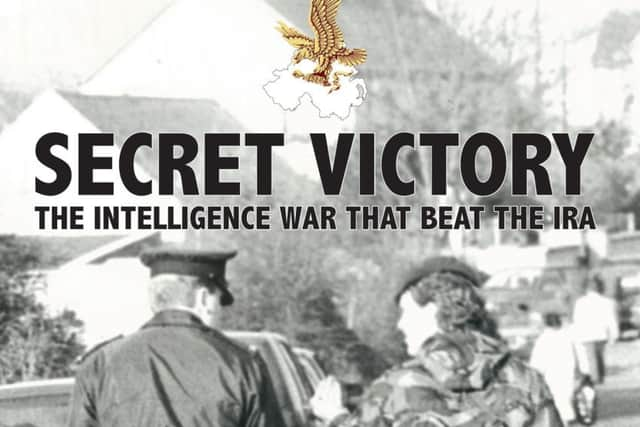Secret war with IRA: '˜Pretence of an undefeatable IRA had to be maintained ... more people had to die'


By the end of the 1970s the criminalisation policy had the Provisionals at a strategic impasse.
Prime Minister Thatcher knew this. So did most republicans but they could not admit it. A decade of violence had achieved nothing.
Advertisement
Hide AdAdvertisement
Hide AdThe insurgency was drifting to politics, illustrating that the majority of IRA members and their supporters had not fully thought through the consequences of starting an irregular war in the first place.


But having come this far the insurgent leadership needed time to figure out how to salvage a terrorist campaign that they knew would fail to achieve its headline aims into a success story that delivered some political gains.
Solving this problem increased in urgency the more normal policing returned to hostile areas, which was crucial to growing the Catholic community’s confidence in the police. The Hannigan Report shows that the police wanted to be unaccompanied by soldiers in as many places as possible.
Divisional SB located in offices in the larger police stations throughout the force and a small HQ in Belfast greatly benefited from MI5 guidance. This was how the traditional intelligence-gathering function progressed.
Advertisement
Hide AdAdvertisement
Hide AdSimilarly, British Army special forces were instrumental in establishing SB’s new executive arm – surveillance and armed response. The one element of the military not partnered up with its police counterpart was the Force Research Unit (FRU) in what the Army went on to call HUMINT (Human Intelligence).


Relations between the FRU and SB had not the same warmth as the others. A former SB detective claims his office was knocked back in its efforts to work with FRU staff in Bessbrook and Newry, two busy SB offices that covered Northern Ireland’s ‘Helmand’ and closest to the insurgency’s Dundalk capital. Dundalk probably contained more outlaws proportionate to the town’s population than anywhere else in the world. It was the Republic’s El Paso.
The Army’s lack of local knowledge was a major failing. Short tours of duty meant there was little time to establish good working relationships with the police.
Some Army commanders found it difficult to grasp police primacy and the Northern Irish culture.
Advertisement
Hide AdAdvertisement
Hide AdThe emergence of the FRU in 1980 may have rectified some of these shortcomings. Little, however, could be done about the fact that soldiers think differently to police officers.
The briefest examination of Army intelligence documents reveals excellent attention to the mechanics of how an agent is met. In contrast to SB these were Spielberg productions, helicopters providing aerial surveillance, lots of personnel in the target area providing close cover and an Army unit close at hand as a Quick Reaction Force.
The instructions given to the agent were less comprehensive, often revealing a lack of understanding of the criminal law and associate implications if certain courses of action were proposed or taken.
As one former SB officer noted: “The Army treated the Provos as the enemy in the military sense of the word.”
Advertisement
Hide AdAdvertisement
Hide AdUnlike the police, the Army was slow to realise the legal hazards connected with a well-placed agent in a terrorist organisation. Soldiers were being exposed to legal risks they had no idea existed.
There was little appreciation that, at a future date, their actions would be legally scrutinised. There was even less appreciation how republicanism historically behaved after a war.
Whilst the FRU contribution is not insignificant, it was small and not as effective as the Det or SAS. Unlike other specialist military units the FRU was a strained fit within the new ‘E’ department and a departure from classic British counterinsurgency.
Experience in previous conflicts, and conflicts since, is that separate intelligence agencies turn into zealously guarded fiefdoms causing confusion and generally blunting the intelligence attack. Just by existing the FRU made it hard for SB.
So why did the Army persist with running agents?
Advertisement
Hide AdAdvertisement
Hide AdA former FRU officer answers: “Firstly, the Army is set up to do this. It has all the organisational attributes to support HUMINT operations. In Northern Ireland the Army was able to recruit and run agents that Special Branch could not because the individuals concerned preferred to deal with the Army.”
Former SB officers are unconvinced. They believe that SB detectives originally from England with military service could have allayed these concerns. Another reason offered is that people became Army agents because they saw the police as sectarian. Stacked against the facts this is also unconvincing.
The FRU only had a handful of agents of any worth who were mostly in Belfast. All of whom, in the opinion of former SB officers, would have been prepared to talk to SB.
If a prospective agent wanted an English accent or a Catholic, SB had both.
Advertisement
Hide AdAdvertisement
Hide AdWithin a few years of taking over and by the early 1980s, SB was central to the strategic and tactical co-ordination of the entire security apparatus. The arrangement better prepared SB against suffering the same fate as crime squads and supergrasses. In this regard it would not take long for SB’s resilience to be tested.
In 1982 three covert operations in which E4 SSU shot dead five insurgents and one suspected insurgent would raise ‘E’ department’s profile. ‘Shoot-to-kill’ and ‘cover up’ would be the headlines. Sinn Féin stoked sensationalism and provoked
controversy to get rid of SB. After all, this is what it did best.
Dark forces, sectarian death squads, state killers were all the stuff of a secret dirty war. Journalists had a field day. This was so much sexier than writing about suspects beaten into confessing or terrorists testifying. And the secrecy aspect gave a licence to wrap supposition around some loose facts. Endless columns were printed, books published, documentaries screened and reputations made. Perception turned into reality. Nationalists were outraged,
Advertisement
Hide AdAdvertisement
Hide AdAmnesty International horrified, Dublin appalled and Irish-America incandescent. Inquiries were called for. SB was a scandal. The security approach had to go. Not this time though.
The negative ‘shoot-to-kill’ and conspiracy headlines were predictable and would continue. But so would the arrests of IRA men and funerals of those most wedded to the gun.
Headlines, however, bring little comfort to a grieving family or a wife whose husband is serving 25 years. The insurgent leadership was increasingly inventive in hiding their true intent. They were not yet ready to cash in their terrorist chips for political currency.
In the late 1970s they still believed more political gains could be made.
Advertisement
Hide AdAdvertisement
Hide AdThe pretence that the IRA was undefeatable was maintained. More people had to die. Had an accurate assessment of the insurgency fallen into IRA hands in 1978 it would not have seen the light of day.
Even in 1982 ‘E’ department was still a tiny fraction of the security forces and much smaller than the agencies that led the security effort before it.
Man for man it was just over half the size of the IRA. If one adds Sinn Féin it was outnumbered four to one.
SB had yet to fully mature. Yet, there would be no relief for the IRA as SB transformed from an awkward teenager into a young adult.
Advertisement
Hide AdAdvertisement
Hide AdWhen on-the-runs came up north there would be no hiding place. The border would be taken out of the equation despite Dublin, as the 1982 incidents will show.
Against a co-ordinated security effort, especially at the tactical level in covert operations, for the IRA there was not enough luck in Ireland to prevent their defeat.